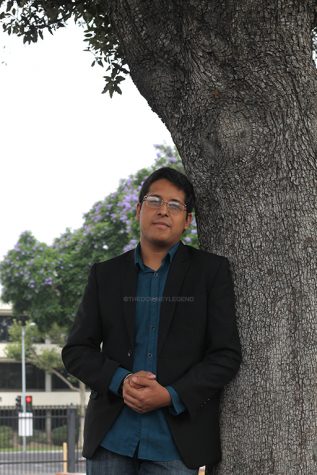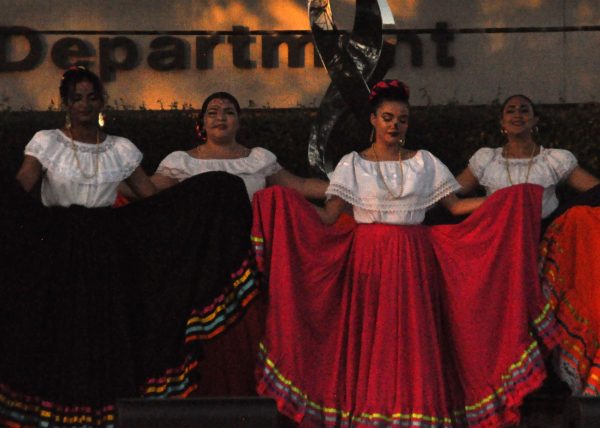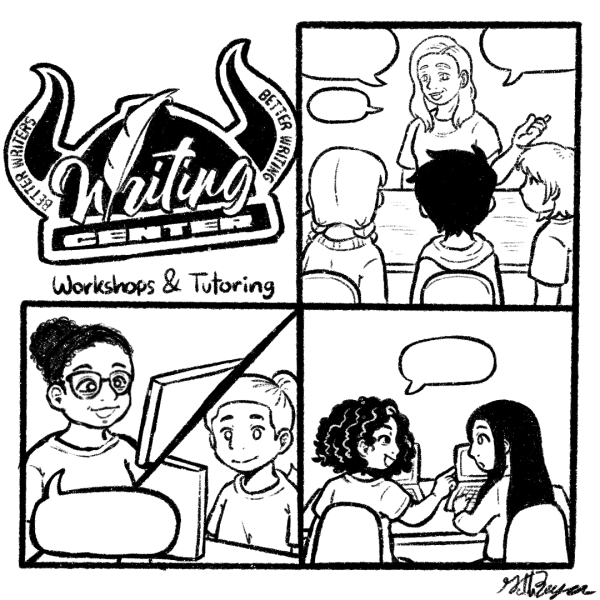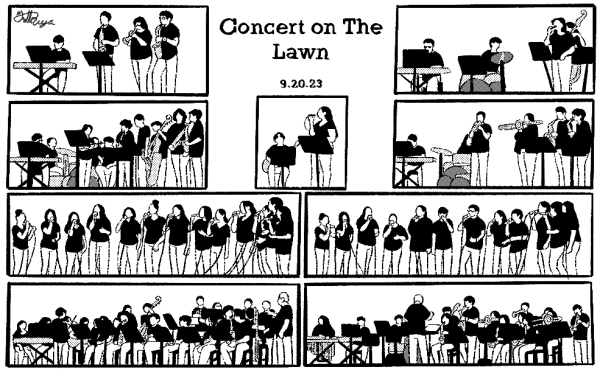Cosmic Vikings Advance to ISS Finals
December 18, 2017
Receiving the news of their qualification on Dec. 5, Downey High’s Cosmic Vikings qualified for International Space Station (ISS) Finals, ranking 13th among other teams internationally. The team and those around the globe were tasked with writing code for SPHERES (Synchronized Position Hold Engage and Reorient Experimental Satellites) using the C++ coding language.
The tournament began in Sept. and lasts up until Jan.. During that time, registered Zero Robotics teams craft programs to run simulations twice: once in 2D and 3D. 2D simulations during the month of Sept. serve as practice for those alien to the process of coding.
No prior knowledge was necessary to join the team, which was helpful for Jose Cisneros, 11, who had experimented with other programs but was given the ability to train and fortify his skills in a new coding language.
“I knew little of the programming languages – Java and HTML – but Zero Robotics uses C++, so it was a new experience for me,” Cisneros said. “Learning a new language was definitely a difficult task. The program offers tutorials, and Akhil, our captain, has meetings where he teaches us, so the process was made easier. Self-teaching and practice will be necessary to become really good at it, but it’s definitely been a fun experience. It’s like solving puzzles; it takes a while to be solved, but the more you do, the better you’ll get.”
After the 2D practice simulation is submitted to the Massachusetts Institute of Technology (MIT) for review, teams advanced to the 3D simulation competition. Simulations are run, teams are eliminated, and alliances are formed. Alliances of three teams each are drafted before the next simulation for the satellite is submitted – the alliance submission determines which teams move on to ISS Finals.
The Cosmic Vikings joined up with two other teams – Cora’s Eleven (Italy) and the Tachyons (USA) – to form the Cosmic TaCo and rank thirteenth among other alliances.
Ecstatic to learn of their qualification for finals, Noah Palacios, 11, expresses the wave of emotions he felt on the day of the announcement.
“Well, we [Cosmic TaCo] actually didn’t know if we were going to make it because we checked the leaderboard the day before and we were like 19th and only the top 14th make it. Actually, the day they were supposed to release results, they weren’t because they needed to run more simulations the whole day and next day, we were all constantly checking for the results; they see we jumped up like 6 places up to 13th, that was crazy,” Palacios stated. “I was freaking out – I found out right after 5th period, then after school we had a little celebration.”
Qualifying teams are set to travel to Massachusetts on Jan. 9 of 2018 with the competition initiating two days afterword.
Reviewing this year’s code and performance, team captain Akhil Sharma, 12, hopes to expand the team’s repertoire to improve on the code for next year’s competition.
“I’ve seen a good amount of improvement. The team members have been able to make their own algorithms and write their own code for this year’s game. This really shows how they’ve developed strategic thinking skills as well as programming skills,” Sharma said. “We will review this year’s code and see what changes we can make for improvements in satellite motion and rotation for next year’s game. We will also look more into complex math such as rotation matrices and how they can be integrated in satellite movement.”
Finals for the Zero Robotics competition are set to take place Jan. 11, 2018 at the Massachusetts Institute of Technology and the University of Sydney; the event will be hosted by both schools simultaneously via video/audio links. To view the tournament live on Jan. 11, visit the official Zero Robotics website here.






